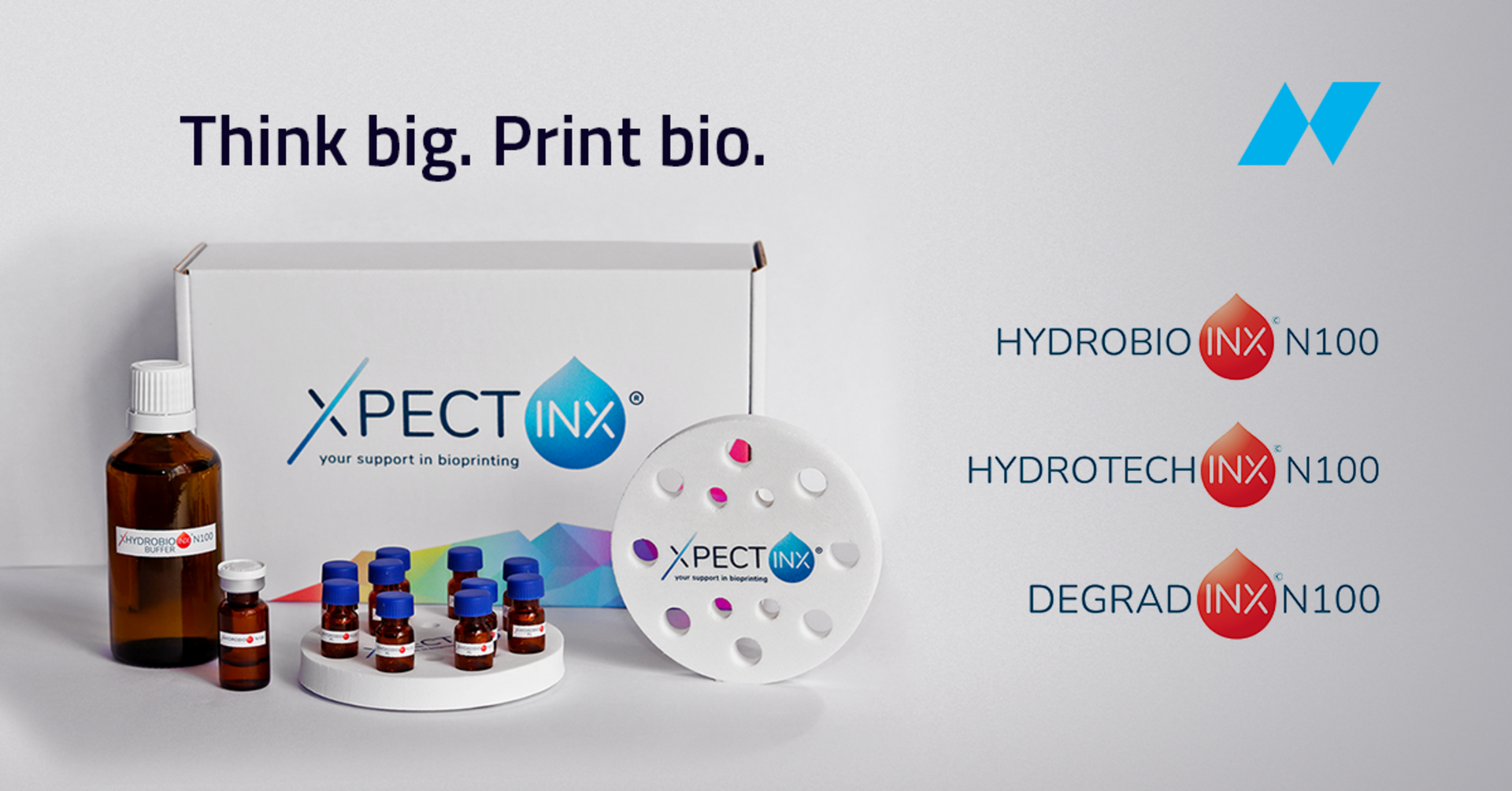Our partner Xpect Inx®, a spin-off of the Ghent University in Belgium, launches the N100 series with hydrogels and biodegradable photoresins for high-precision 3D printing promising applications in a wide range of fields such as cell cultivation, tissue engineering, regenerative medicine and biology. All the printing materials in the N100 series are specifically designed for Nanoscribe’s microfabrication systems.


